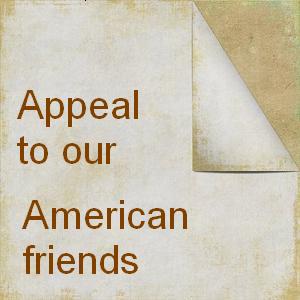 Afrikaners and Zulus share a history of struggle for freedom, identity, and recognition, IFP leader Mangosuthu Buthelezi said on Friday.
Afrikaners and Zulus share a history of struggle for freedom, identity, and recognition, IFP leader Mangosuthu Buthelezi said on Friday."Just as you fought for the preservation of your cultural identity, language, and values as we negotiated a democratic settlement, I fought for the recognition of the Zulu kingdom and the Zulu monarchy," he told the Afrikaner forum convened by his party in Pretoria.
Buthelezi said injustices of the past had been pursued through affirmative action and broad-based black economic empowerment to re-address them, but what worried him was the ANC's recent recommitment to affirmative action when already the first generation of South Africans wholly educated under a new dispensation were entering the job market.
"We may not yet have reached our goals. But there must be a sunset clause to affirmative action that clearly defines the goal post."
He said Afrikaners had a role to play in South Africa.
"We need Afrikaners to put a shoulder to the struggling wagon of South Africa and get it through the drift."
Buthelezi said the IFP had signed a memorandum of understanding with Solidarity trade union in which they rejected the implementation of affirmative action on the basis that it unfairly discriminated against other South Africans.
Earlier, Solidarity's Dirk Herman told the forum the union had called for a moratorium on affirmative action on all essential and scarce skills.
Buthelezi said the history of the relationship between the Zulu and the Afrikaner nation extended back to their forefathers.
"When the British colonial powers attempted to subjugate and destroy the Zulu nation by imprisoning my maternal grandfather King Dinuzulu in Cape Town and St Helena, it was General Louis Botha who intervened to secure his release.
"When the armed struggle was birthed in response to apartheid, I met with Dr Beyers Naude and together Inkatha and the Christian Institute pursued black political reconciliation in an attempt to halt the impending bloodshed," he said.
Afrikaners were right to be concerned about their cultural identity, language, values and traditions, as there was a determined plan to centralise power within the ruling ANC.
"There is a plan to homogenise South Africa and even rewrite our country's history."
"I feel it as a Zulu and you feel it as an Afrikaner. We need to keep fighting for our rightful stake in South Africa," Buthelezi said.
The Wall of Remembrance at the Freedom Park monument carried the names of those who fought in the war in Angola and the then South West Africa, but no names of Afrikaners could be found between the many of UmKhonto weSizwe.
"We cannot allow history to be rewritten to the benefit of one party. It pains me that I actually had to take the Minister of Education to court to remove an inaccurate and damaging reference to me in a history text book which is being used by matric students.
"I am not afraid to acknowledge our past. Many of you will recall that during the work of the Truth and Reconciliation Commission, I publicly apologised to the Afrikaner nation for the murder of Piet Retief by my ancestor, Dingane."
General Gert Opperman of the Voortrekker Monument and Heritage Foundation said the Freedom Park memorial space was not contributing to nation building, but was a project of the ANC, aimed at dividing the nation and praising that party's achievements.
Complaints have been received over the selection of heroes to be remembered at the memorial.
Critics say the list does not include some historic figures important to Afrikaners.
Opperman said there was an ever increasing concern that the Afrikaner people were marginalised.
"Afrikaners do not attend public holiday activities, because they [feel] marginalised and more often public holidays are misused for political activities," he said.
Buthelezi said he was not speaking to the Afrikaner nation because he wanted them to join his party, but would continue to work with them because they shared the same struggle.
Source : Sapa /mm/jk
Date : 27 Mar 2009 15:58






